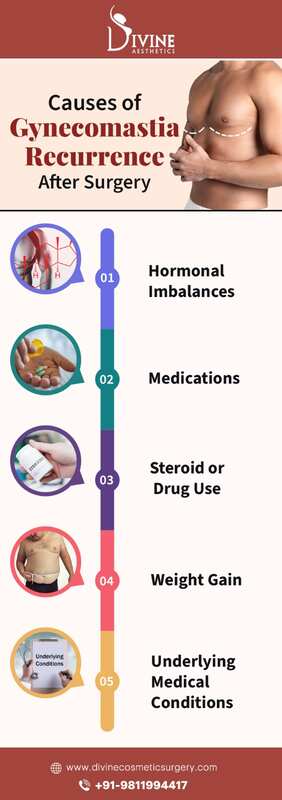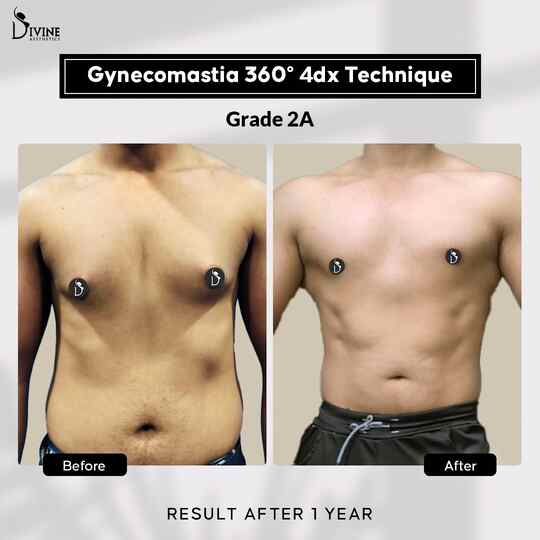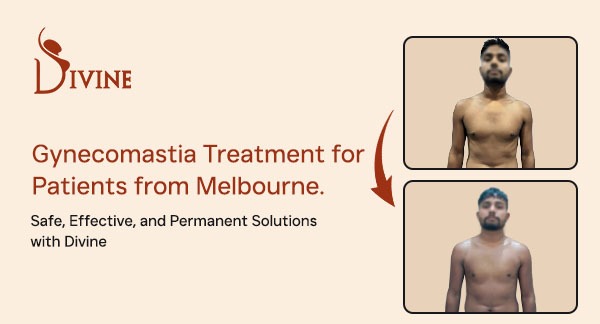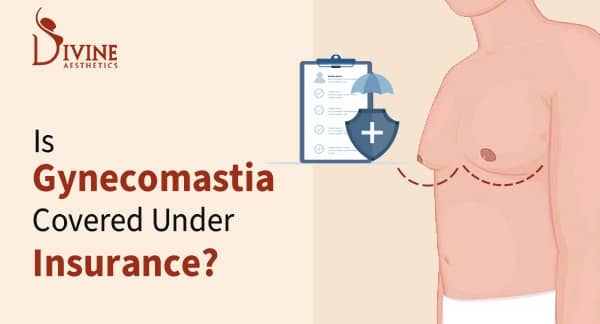Gynecomastia, the presence of enlarged male breast tissue, is a common condition seen in men of all ages. Although male breast reduction surgery is an effective, lasting treatment for this condition, many patients worry about the possibility of gynecomastia returning, asking, “Can gynecomastia return/come back after surgery?”
In this guide, we will discuss gynecomastia recurrence, its causes, the frequency of recurrence, prevention strategies, and what to do if the condition returns. Also, find out how to tell true recurrence from pseudogynecomastia, and expert advice on getting results that last for the long term.
Can Gynecomastia Return After Surgery?
Once the excess glandular tissue and fat are surgically excised then gynecomastia after surgery is rarely returned. But recurrence can happen in some circumstances — especially if the underlying causes are not treated.
Male breast reduction eliminates both fat deposits (using either liposuction or VASER techniques) and glandular breast tissue (using excision). If done by an experienced surgeon, the likelihood of regrowth is almost nil. However, the gynecomastia may sometimes return because of hormonal imbalance, lifestyle, or taking a few medicines.
What Is Gynecomastia Recurrence?
Gynecomastia recurrence refers to the reappearance of enlarged male breast tissue after a person has already undergone male breast reduction surgery. In simple terms, it means the condition comes back, either in the form of true glandular tissue regrowth or the appearance of a larger chest due to fat accumulation (pseudogynecomastia).
Causes of Gynecomastia Recurrence After Surgery

Causes of Gynecomastia Return
Understanding the causes is key to preventing recurrence. Some of the most common triggers include:
- Hormonal Imbalances
- Increased estrogen or reduced testosterone levels can stimulate glandular tissue growth.
- Conditions such as obesity, thyroid disorders, or steroid use may worsen the imbalance.
- Medications
- Certain drugs, including anti-androgens, anabolic steroids, antidepressants, or heart medications, can lead to new gland formation.
- Steroid or Drug Use
- Recreational use of anabolic steroids or marijuana is strongly linked to gynecomastia recurrence.
- Weight Gain
- Even though the gland is removed, significant fat gain can cause the chest to appear enlarged again, leading to pseudogynecomastia rather than true recurrence.
- Underlying Medical Conditions
- Rarely, tumors affecting hormone production or chronic illnesses may cause male breast tissue regrowth.
How Common Is Gynecomastia Recurrence?
In reality, gynecomastia recurrence after surgery is statistically very rare. Studies have shown that less than 5–10% of patients undergo significant regrowth of glandular tissue after proper surgery.
In reality, the majority of cases in which men experience what they think is the return of their condition is really due to:
- Weight gain (bloating on chest)
- Loose skin post-surgery
- Fibrosis or scar tissue accumulation, which could resemble recurrence of the gland
Therefore, it is imperative to ascertain true recurrence versus other cosmetic problems prior to revision surgery.
Signs Gynecomastia Might Be Coming Back
Some common signs of male breast reduction return include:
- New firm lumps or glandular tissue beneath the nipple area
- Increase in chest size even without major weight gain
- Tenderness, swelling, or pain in the chest
- Asymmetry or uneven regrowth on one side
If you notice these symptoms, it is important to consult your surgeon to rule out recurrence versus pseudogynecomastia.
How to Prevent Gynecomastia From Coming Back
No procedure can assure lifetime prevention, but here are ways to greatly reduce the chances:
- Maintain a Healthy Weight
Maintain a healthy diet and exercise to prevent fatty deposits from returning to the breast.
- Avoid Steroids and Recreational Drugs
Gynecomastia recurrence is significantly associated with the use of anabolic steroids, marijuana, and other drugs.
- Monitor Hormonal Health
Have regular testosterone and estrogen level tests done. Some instances may necessitate hormone therapy.
- Review Medications with Your Doctor
Ask your physician for substitutes if you are taking medicines recognized to create gynecomastia.
- Follow Post-Surgery Guidelines
Compression garments, follow up visits, and following all post-op directions given by your surgeon.
Treatment Options If Gynecomastia Returns
However, there are also effective treatment solutions in the event of a recurrence of gynecomastia:
- Revision Surgery : Another gynecomastia surgical treatment can properly remove any growth or scarring associated challenges. Techniques such as 360° VASER liposuction and excision allow for meticulous correction.
- Non-Surgical Treatments: In cases of mild pseudogynecomastia, weight loss and body contouring treatments can be effective.
- Hormonal Therapy: In the case of a hormone-mediated recurrence, a testosterone and estrogen balance can be obtained with appropriate medications.F
Gynecomastia Recurrence vs. Pseudogynecomastia
It is important to distinguish between the two:
- Gynecomastia Recurrence: Regrowth of glandular tissue due to hormonal or medical reasons.
- Pseudogynecomastia: Fat accumulation in the chest area due to weight gain, without glandular tissue regrowth.
A clinical examination and sometimes imaging tests are used to make this distinction.
FAQs About Gynecomastia Coming Back After Surgery
Can exercise prevent gynecomastia recurrence?
Exercise, however, cannot prevent actual gland regrowth (due to hormones — not exercise), but it can help with everything else: chest fat leading to pseudogynecomastia.
Will losing weight help?
Does weight loss help fat in the chest? However, if the glandular tissue comes back, it cannot make it smaller.
Is revision surgery safe?
When performed by an experienced plastic surgeon, revision surgery is safe. Since the glandular tissue is often much less apparent after the first surgery, it’s often quicker.
How long does gynecomastia come back after surgery?
Real recurrence rarely happens in weeks or months, or even years.
Why Gynecomastia Surgery Results Depend on the Surgeon

The chances of recurrence are much lower when the procedure is done by the best gynecomastia surgeon in India, who ensures complete removal of the gland and uses advanced sculpting techniques for natural results.
Poorly performed surgeries, where only liposuction is done without gland removal, can increase recurrence risk. This is why choosing the right hospital and surgeon is critical.
Click for more Divine Gynecomastia Before and After Result
Get Gynecomastia Treatment at Divine Cosmetic Surgery
For confidence-building results and to avail itself of our expert opinion in gynecomastia return/recurrence or if you are seeking for a permanent male breast reduction; Divine Cosmetic Surgery is your most trusted choice in India. Featuring Dr. Amit Gupta, who is globally renowned as the top-rated Gynecomastia surgeon in India, the clinic focuses on the labyrinth of technicality that revolves around procedures such as 360° VASER liposuction and gland excision resulting in permanent and natural results.
At Divine, you get:
- Precision in discerning actual recurrence from pseudogynecomastia
- Revision surgeries, if necessary, safe and effective
- Affordable packages with transparent pricing
- Flexible payment solutions through EMI and financing
- From consultation through to recovery, comprehensive care
Don’t be sidelined by fears of recurrence — get guidance from the experts and world-class treatment.
Get a step closer today — schedule your consultation at Divine Cosmetic Surgery to make for a more secure, permanent chest.











